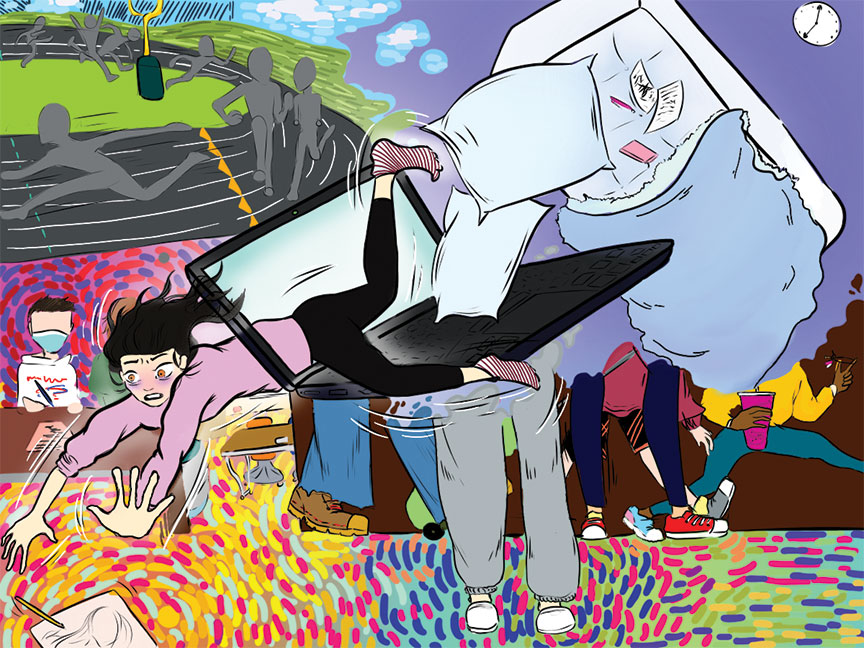Exhaustion complicates return to normal
Overwhelmed and overloaded, this school year is different. Students and staff are not only experiencing new layers of stress, anxiety and uncertainty because of the pandemic, but also returning to their pre-pandemic workload. The resulting exhaustion has exacerbated feelings of lacking motivation and hopelessness.
According to senior Christine Chung, in previous years she would take naps when she felt tired.
“But this year, it’s like even after taking a nap … I still feel tired,” said Chung. “I think that’s the main difference.”
According to senior Nelly Lochnicki, there are many days when she walks into class and cannot keep her eyes open. She just wants to lay down on the floor and take a break from everything that is making her feel exhausted throughout the day.
The levels of stress and anxiety seem higher this year among students and staff compared to pre-pandemic school years, social studies teacher Jamie Ellinger-Macon said.
Experts provide similar explanations as to why people are feeling exhausted after returning to normal.
Psychologist Peter Thunfors said in a phone interview that exhaustion occurs when somebody is out of their regular routine for a year, like during the pandemic, resulting in a natural readjustment process to return to normal.
Board-certified psychiatrist Shalini Varma said in a phone interview that when people came back to their normal routines, they were thrown into disequilibrium.
One symptom associated with exhaustion is not getting restorative sleep, which is when someone sleeps as much as they can but does not feel rested. Other symptoms include poor physical and mental energy, such as being unable to complete tasks like homework, having poor motivation, experiencing a changed appetite and losing interest in activities that used to be interesting, Varma said.
According to school social worker Jennifer Cicciu, being self-aware and mindful can help alleviate the symptoms of exhaustion.
“Even if you’ve always been doing great and you’ve never had an anxious moment in your life, really stop to check in with yourself about how you’re feeling.
“Think about what your positive coping strategies are,” said Cicciu. “Give thought to [them] ahead of time, like, ‘What do I do to make myself feel good and to make myself feel healthy?’”
According to Chung, taking long naps is something she has found herself accidentally doing while completing homework and other assignments in her bed.
“I feel pressured that, ‘Oh, I have to do this, I have to complete this,’ but then my body’s telling me, ‘… You don’t have enough energy to keep going,’” Chung said.


